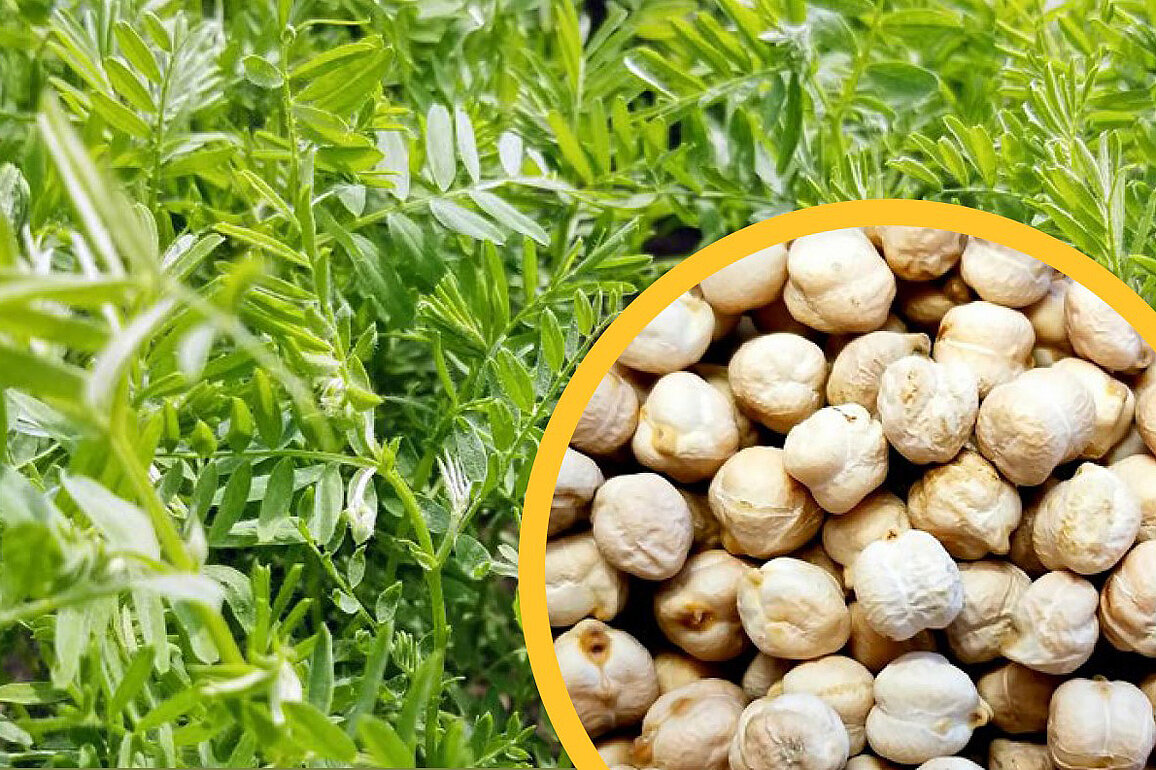Pulse Crops: The Food of the Future

Pop quiz! Name a group of plants that have been cultivated for more than 10,000 years and are still at the forefront of today's food technology? If you answered pulse crops, you are right!
Pulse crops, including dry peas, lentils and chickpeas, are playing a major role in addressing global food security and environmental challenges, as well as contributing to healthful diets. Pulses are linked to:
- Food security because they are a critical and inexpensive source of plant-based protein, vitamins and minerals
- Human health because their consumption can prevent and help manage obesity, diabetes and coronary conditions
- Sustainable agriculture because they are able to biologically fix nitrogen and free soil-bound phosphorus
“The growing demand for pulse crops is due to the incorporation of more plant-based protein in the American diet,” says Hannah Worral, a pulse crop research specialist at the North Central Research Extension Center (NCREC) in Minot. “Pea protein is a main ingredient in many alternative meat products.”
For these reasons and because of their suitability for the soil and climate of western North Dakota, the pulse crop breeding program is a key research focus at the NCREC.
Originally started in 2008 and now led by Nonoy Bandillo, NDSU Department of Plant Sciences assistant professor and pulse crop breeder, the pulse crop breeding program on NDSU’s campus partners with the NCREC and multiple Research Extension Centers across the state to advance pulse production in North Dakota.
The program focuses on developing and releasing high-yielding varieties with increased resistance to pests and diseases and expanding opportunities for marketing pulse crops.
Though the release of new varieties ND Dawn yellow field pea and ND Crown chickpea were major milestones for the pulse breeding program in 2020, the program is not slowing down. Some of the cutting-edge technologies currently being studied or developed are:
- High-protein varieties
- Climate-resilient varieties
- Specialty-type varieties, such as zero-tannin lentil
- Precision-breeding using molecular markers for disease resistance
- Genomic selection
- High-throughput phenotyping using unmanned aerial systems and robotics
In addition to these projects, Bandillo’s pulse breeding program was recently awarded a $1.2 million grant to build genomic resources, breeding models and tools for improving total protein content in peas.
“Everybody talks about a projected world population of nine billion people by 2050,” says Bandillo. “What they do not tell you is that as part of this growth there will also be a rising demand for pulse crops, as the front runner for protein-rich ingredients. We hope to help North Dakota pulse farmers capitalize on this growth.”
FOR MORE INFORMATION:
NDSU Research News - NDSU pulse crops breeder Nonoy Bandillo receives $1.2 million grant to study pea protein
Nonoy Bandillo, 701-231-8056, nonoy.bandillo@ndsu.edu
Hannah Worral, 701-857-7677, Hannah.m.worral@ndsu.edu


